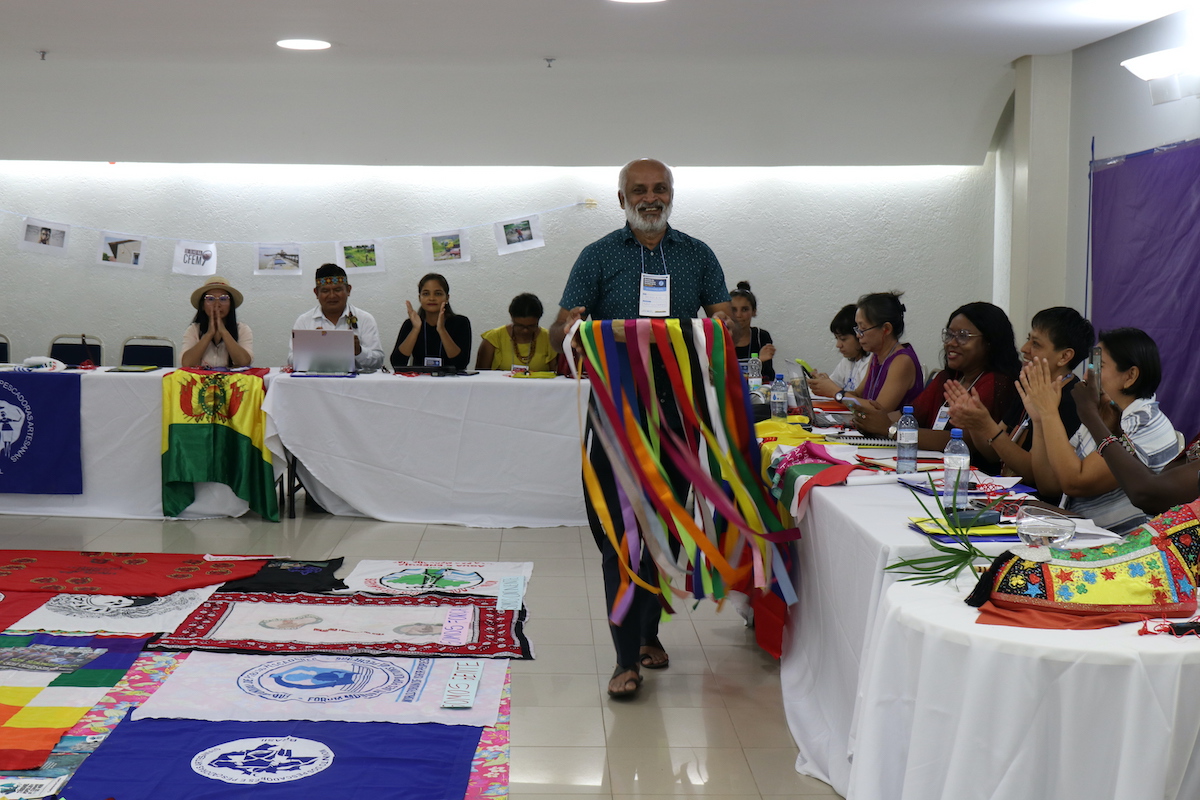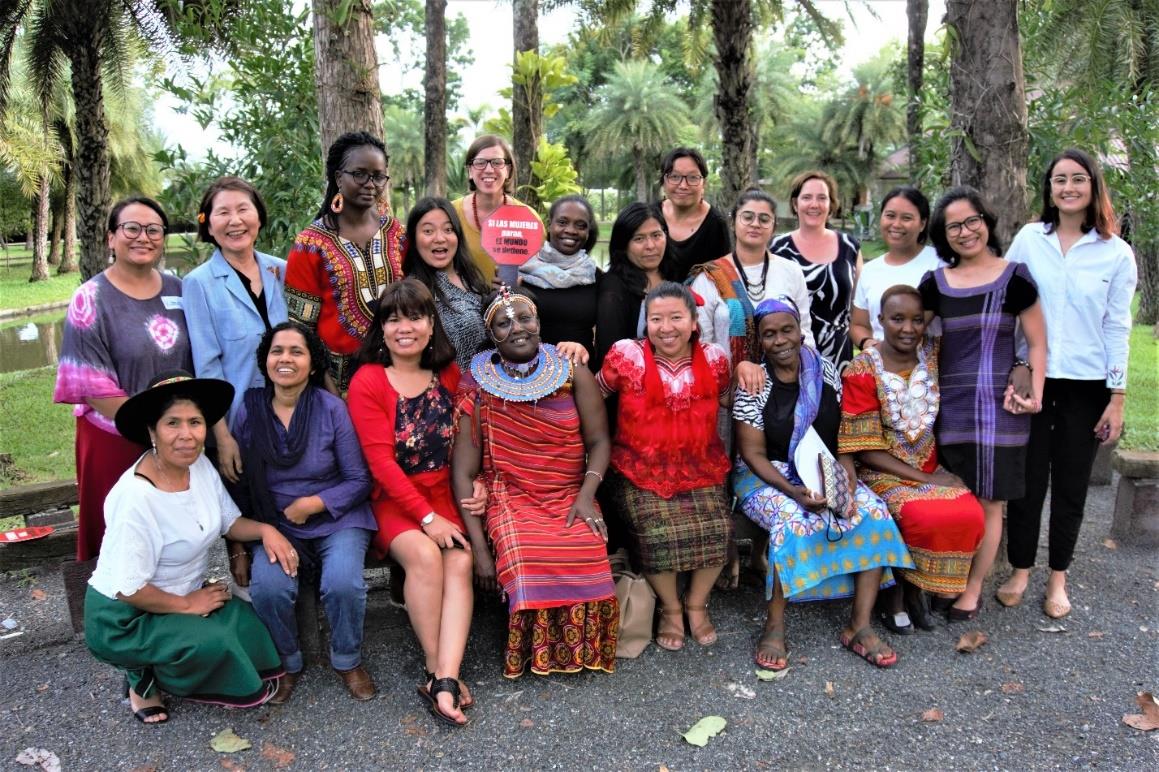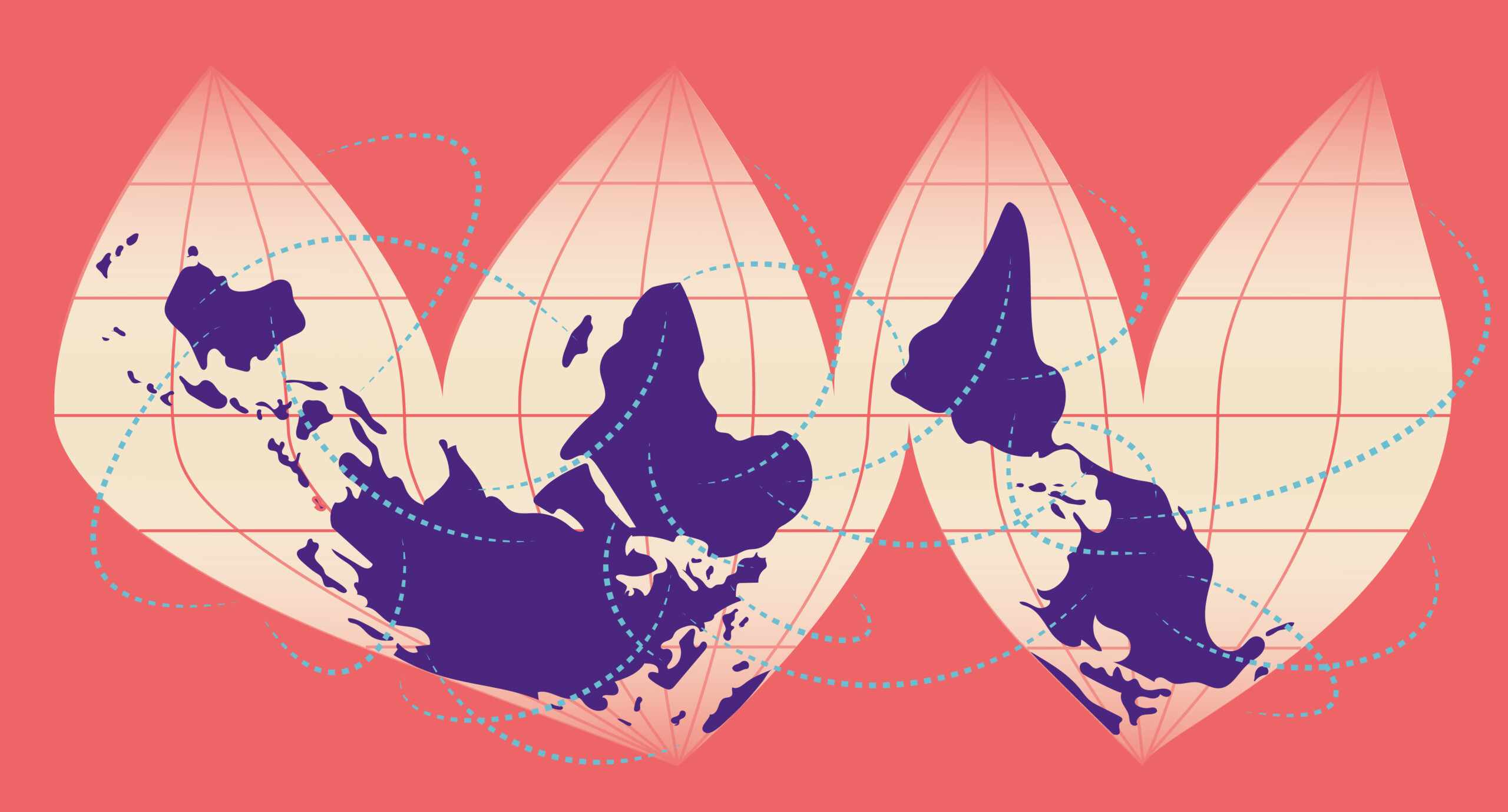Mission


- 40 leaders from over 25 social movements across Latin America, the Caribbean, Asia, and Africa attended our social movements gathering in Sao Luís, Brazil, in January 2024.
- Members of the Women and ESCR working group during the women leaders’ exchange on the struggles for land, and natural resources held in 2019 in Chiang Mai, Thailand.
Through ESCR-Net, groups and individuals exchange information, cultivate a collective voice, amplify their actions, and develop new tools and strategies. By facilitating joint actions, enhancing communications and building solidarity across regions, the Network seeks to build a global movement to make human rights and social justice a reality for all.
The only tool the poor have is organizing to resist, and when I talk about organizing, I don’t just mean Indigenous organizations joining forces. We have to unite with fisher people, miners, and academics—that is, everybody. If we do not, we cannot resist.
In September 2024, ESCR-Net successfully convened its Global Strategy Meeting (GSM) in Chiang Mai, Thailand, bringing together over 100 members to strengthen collective struggles for self-determination—a right and a form of resistance in the face of neoliberal capitalism intertwined with patriarchy, racism, colonialism, and imperialism.
Building on the Common Charter for Collective Struggle, first shaped by members in 2016 and recently updated, the 2024 GSM provided a space to assess our positioning as a Network in light of deepening global challenges and to chart our collective strategic direction moving forward. The result: the framing of the ESCR-Net Strategic and Institutional Development Plan (2025–2029).
Looking back at the challenges we identified in 2016 and the strategies we developed, there has been some progress. But we also see the challenges have grown, particularly with the increasing power of businesses and the violations against communities on the frontlines. We must rethink our strategies and methodologies.”
— Legborsi Saro Pyagbara, African Indigenous Foundation for Energy and Sustainable Development
Through this collective process, members developed “guiding stars”—shared visions of the systemic change we must work toward over the next five years to confront intersecting crises related to climate, debt, care, and corporate capture, with the realization of our right to self-determination as an overarching goal—our sun on the horizon.
Our Guiding Stars
- Peoples and movements strengthen their power and lead decision making processes, eliminating corporate capture and claiming their right to self-determination and their sovereignty from governments, corporations and economic elites for the well-being of people, in harmony with the planet, and abiding by human rights and feminist visions.
- People-led movements will use divestment and sanctions to hold corporations, States, private actors, and financial institutions accountable and ensure full reparations for direct and indirect harms to the people and the planet.
- Communities strengthen collective action to exercise their sovereignty, self determination, and care over territories and lead decolonial evidence, knowledge and solutions to the climate crisis.
- Communities and peoples’ movements hold states, private and financial actors accountable using enforceable legal frameworks that ensure prevention, integral reparation, and the fulfillment of rights of peoples, nature and territories.
- Generate just, feminist and equitable care economies as alternatives to systems of oppression, based on el buen vivir, dignity and collective care and security for everyone in all their diversity.
- End the sexual and gender division of labor and inequalities, recognise care as decent and dignified work and fulfill the right to care as a public and collective responsibility for a world of work free of all forms of violence and harassment.
- A strengthened global people’s movement to champion cancellation of unjust / illegitimate debts and the right to default, towards a self determined and sustainable socio-economic future and to achieve decolonized care systems.
- A transformed global financial architecture where impacted communities can actively and fully participate in development financing processes and challenge neo-colonial paradigms through popular political analysis.


